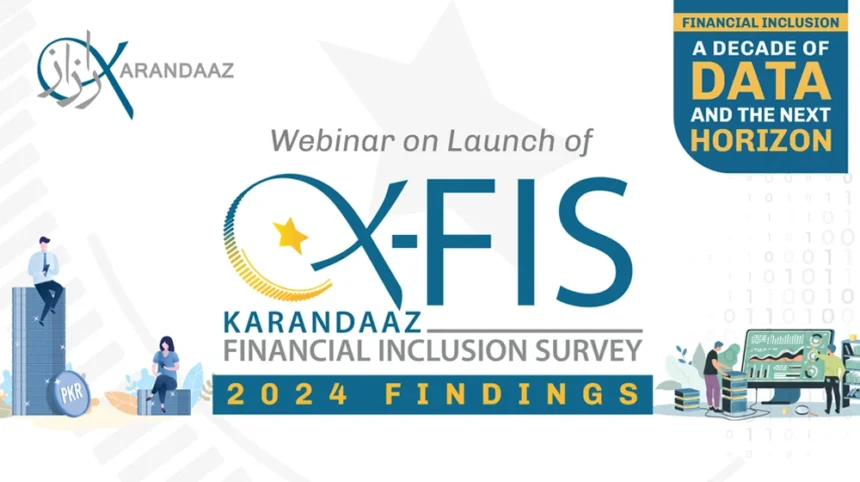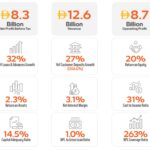Financial inclusion in Pakistan has surged over the past decade, rising from just 8% in 2013 to 35% in 2024, according to the latest Karandaaz Financial Inclusion Survey (K-FIS) released this week. The survey, a unique demand-side study capturing the financial behavior of Pakistanis across gender, geography, and income brackets, reveals mobile money as a game-changer — now used by 30% of adults compared to less than 1% a decade ago.
Despite the upward trend, the 2024 findings underscore persistent challenges. Only 14% of women in Pakistan own a full-service financial account, in stark contrast to 56% of men. Access to mobile phones—a gateway to digital finance—is also skewed: 46% for women versus 82% for men, limiting their participation in digital financial systems.
Geographical disparities remain prominent. Punjab leads with 40% financial inclusion, followed by Islamabad (38%) and Gilgit-Baltistan (33%). Balochistan (23%) and Azad Jammu & Kashmir (25%) trail behind. Encouragingly, wallet registrations under the RAAST system have jumped from 17% to 41% in just two years, with users citing speed and affordability as key benefits.
Waqas ul Hasan, CEO of Karandaaz, pointed to the gender divide as a major concern, reiterating the organization’s commitment to building an inclusive economy. “We envision a Pakistan where financial services are accessible to everyone—regardless of gender or background,” he said.
However, formal services remain underutilized. An overwhelming 85% of adults still rely on informal credit sources like family and friends. Trust is another major hurdle, with only 9% of financially excluded adults expressing trust in banks and 8% in mobile money platforms.
During the launch webinar, Syed Samar Hasnain from the State Bank of Pakistan emphasized the value of demand-side surveys in understanding real financial behavior, beyond institutional data.
Two expert panels enriched the event, tackling inclusion gaps and gender equity in finance. Industry leaders from easypaisa Digital Bank, Oraan, Bank Alfalah, and others shared strategies to accelerate progress.
In her closing remarks, Carol Coye Benson, Adviser to Karandaaz Board, highlighted that K-FIS is more than just data—it’s a lens into how people interact with the financial system. “This year’s insights show both our progress and the road still ahead,” she said.
As Pakistan deepens its investment in digital transformation, the K-FIS 2024 report stands as a crucial tool for policymakers and financial service providers aiming to create a more inclusive, trusted, and resilient financial ecosystem.







